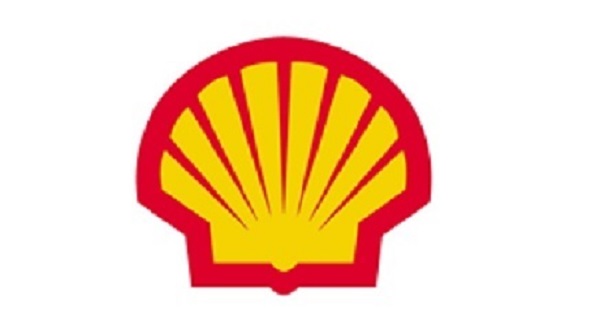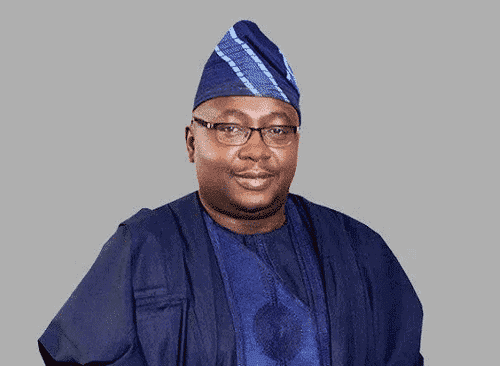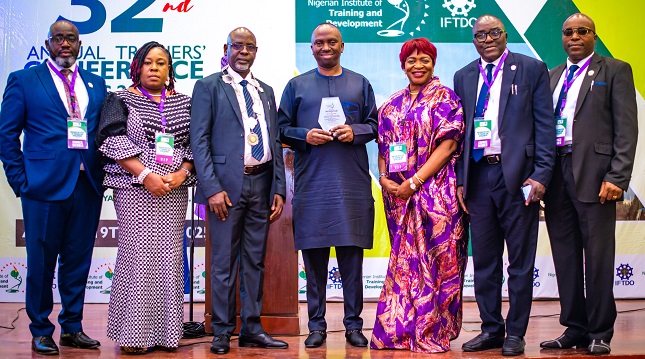News
How Shell Killed My Husband, Widow Tells Court in The Hague

Esther Kiobel, one of the widows of the nine environmental activists that were hanged by the Nigerian Military government in 1995, has given testimony in the court case she filed against Shell, an international oil company, over the killing of her husband.
Kiobel and three other widows whose husbands were also among those executed accuse Shell of complicity in the execution of their husbands, and they want the Netherlands-based oil giant to pay them compensation.
Following her husband’s execution, Kiobel said she had to flee to the United States under a refugee programme later became a citizen. The three other women joining her in the suit were not granted visas to travel to attend the court proceedings.
“Shell came into my life to take the best crown I ever wore off my head. Shell came into my life to make me a poverty-stricken widow with all my businesses shut down. Shell came into my life to make me a refugee living in harsh conditions before I came to the United States through a refugee programme and now I am a citizen,” the BBC quoted Kiobel as telling the court on Tuesday.
“The abuses my family and l went through are such an awful experience that has left us traumatised to date without help.
“We all have lived with so much pain and agony, but rather than giving up, the thought of how ruthlessly my husband was killed… has spurred me to remain resilient in my fight for justice.
“Nigeria and Shell killed my late husband, Dr Barinem Kiobel and his compatriots: Kenule Tua Saro-Wiwa, John Kpuinen, Baribor Bera, Paul Levula, Nordu Eawo and the rest of the innocent souls.
“The memory of the physical torture my family and l went through has remained fresh in my mind, and whenever l look at the scar of the injuy l sustained during the incident, my heart races for justice all the more.”
However, Shell, in a statement filed in its defence, denied that it colluded with the then military regime in Nigeria in the execution of the Ogoni nine. The company claimed it appealed to the government for clemency but that the appeals were waved aside.
“We have always denied, in the strongest possible terms, the allegations made in this tragic case. SPDC [the Shell Petroleum Development Company] did not collude with the authorities to suppress community unrest, it in no way encouraged or advocated any act of violence in Nigeria, and it had no role in the arrest, trial, and execution of these men,” the statement read.
“We believe that the evidence clearly shows that Shell was not responsible for these distressing events.”
In 1990, author Ken Saro-Wiwa led the formation of the Movement for the Survival of the Ogoni People (MOSOP) to raise awareness to the environmental degradation in Ogoni land as a result of oil exploration activities, demanding compensation from the federal government.
He and eight other activists were arrested and accused of murdering four Ogoni traditional rulers. They were tried secretly, convicted, and sentenced to death by hanging. The trial was described as a sham by members of the international community.
But despite the local and international outcry, the activists were publicly executed in November 1995.
Kiobel first filed the lawsuit against Shell at a federal court in New York, USA, in 2002, but the case was later dismissed by the US Supreme Court in 2013 for jurisdictional reasons.
In 2017, she filed another civil action in the Netherlands—home of Royal Dutch Shell—based on the same claims.
She also claimed that she was whipped, sexually assaulted, and detained without food, water, or other basic necessities for weeks when she tried to bring food to her husband at a detention camp.
News
Nigeria Taps $190M JICA Loan to Power Underserved Communities

Nigeria is seeking a $190 million renewable energy loan backed by the Japan International Cooperation Agency (JICA), according to Adebayo Adelabu, minister of power.

Minister Adebayo-Adelabu
In a statement released by the ministry on Saturday, Adelabu disclosed the plan during the 9th Tokyo International Conference on African Development (TICAD 9) in Yokohama, Japan, where the Nigerian delegation led by President Bola Tinubu held high-level discussions on power, infrastructure, and industrial transformation.
Adelabu said the facility is aimed at scaling distributed renewable energy solutions across underserved communities. “This builds on the recently launched $750 million World Bank Distributed Access through Renewable Energy Scale-up (DARES) programme under the Mission 300 Compact, which aims to bring clean and reliable electricity to more than 17 million Nigerians,” the ministry said.
The minister also held talks with Japanese corporations including Toshiba, Hitachi, Japan’s transmission and distribution corporation, and energy exchange corporations. Discussions focused on strengthening transmission infrastructure, improving operational efficiency, and cutting system losses.
The ministry said these engagements build on recent Federal Executive Council approvals for counterpart funding of N19.08 billion to unlock a $238 million loan from JICA. The loan will finance the expansion of the national grid, including the construction of over 200km of new 330kV and 132kV double circuit lines, six new substations, and extensions to existing facilities.
Three substations funded through a $32 million JICA grant—located in Apo (FCT), Keffi (Nasarawa), and Apapa (Lagos)—are also set for commissioning, a move expected to boost supply reliability for households, industries, and business hubs, including the Lagos Port.
Speaking during a panel session themed “HICKARE Africa: Harnessing Innovation, Co-creation, and Knowledge for Accessible and Resilient Energy for Africa”, Adelabu highlighted Nigeria’s energy gap, noting that only 55–60 percent of the population currently has access to electricity, much of which is unreliable.
He outlined the government’s approach to expand grid access in urban areas while accelerating off-grid solutions such as solar mini-grids and standalone systems in rural and peri-urban communities. He pointed to challenges including limited access to affordable capital, high costs for rural households, and the under-utilisation of productive-use equipment.
Despite these hurdles, the minister reaffirmed the government’s commitment to reforms through supportive policies, private-sector collaboration, and increased local manufacturing of renewable energy components.
Adelabu commended JICA and the Japanese government for their “long-standing support” to Nigeria’s power sector, praising their contributions to infrastructure, training, technical studies, and financing. He expressed optimism for deeper partnerships between both countries in driving Nigeria’s energy transition.
News
Banigbe, T2 CEO says Nigeria’s Growth Hinges on Learning, Innovation, and Afrocentric Content

Obafemi Banigbe, chief executive officer of T2, has stressed that Nigeria’s long-term economic transformation depends on continuous upskilling, digital learning, and workforce adaptability.

Speaking as Special Guest at the 32nd Annual Trainers’ Conference (ATC 2025) of the Nigerian Institute of Training and Development (NITAD), held recently at the Shehu Musa Yar’Adua Centre, Abuja, Banigbe warned that without deliberate investment in human capital and technology-driven innovation, the nation risks lagging behind in a rapidly evolving global economy.
Drawing from personal reflections, practical insights, and a forward-looking vision, Banigbe urged Nigerians to reimagine approaches to learning, work, and growth in order to build a prosperous, inclusive, and innovation-led society.
He emphasized that the traditional model of “learning once and working forever” is obsolete.
“With Nigeria projected to become the world’s third most populous nation by 2050, and 70 percent of its citizens under 30, the need for continuous upskilling, digital learning, and adaptability is not optional, it is existential,” he stated.
Banigbe underscored the importance of democratizing access to digital tools, ensuring that every Nigerian child has the same opportunities as peers in developed economies.
He called for the creation of Afrocentric educational content, including culturally relevant cartoons, to help children learn science, mathematics, and history through familiar cultural references rather than foreign identities that disconnect them from their environment.
He also urged a national shift away from a culture that prizes certificates and training hours to one that rewards competence, innovation, and problem-solving.
He envisioned a civil service and workforce driven by solutions rather than processes, stressing that while artificial intelligence may analyze and automate, it cannot dream, uphold ethics, or create new nations, a reminder of the enduring human advantage.
Banigbe further encouraged adoption of cost-effective training models such as online platforms, virtual cohorts, and open-source learning, while acknowledging the continued value of global exposure where local resources fall short.
During an interactive question and answer session, he addressed concerns around affordability, accessibility, and the role of self-driven digital education in shaping Nigeria’s future-ready workforce.
He assured participants that T2 itself is on a path of transformation, committed to delivering world-class services as a proudly Nigerian brand.
In recognition of his contribution to national dialogue and thought leadership, the President of NITAD, James Bulus, presented Banigbe with an Award of Excellence.
News
NACCIMA, TETFund Forge Alliance to Boost Innovation, Skills, Economic Growth

The Nigerian Association of Chambers of Commerce, Industry, Mines and Agriculture (NACCIMA) and the Tertiary Education Trust Fund (TETFund) have agreed to a new strategic partnership aimed at driving innovation, entrepreneurship, and workforce readiness.

Led by its National President and Chairman of the Organized Private Sector of Nigeria (OPSN), Engr. Jani Ibrahim, a high-level NACCIMA delegation visited the TETFund headquarters in Abuja today.
The team was received by the Executive Secretary of TETFund, Arc. Sonny S.T. Echono, during what both parties described as a milestone engagement.
Discussions during the meeting focused on collaborative initiatives including entrepreneurship development, support for the green economy, commercialization of academic research, industry–academia synergy, and skills development to better equip graduates for the evolving demands of the labour market.
A key outcome of the meeting was the mutual agreement to sign a Memorandum of Understanding (MoU) and establish a NACCIMA–TETFund Joint Technical Committee that will oversee the implementation of agreed initiatives.
Both sides also expressed commitment to developing additional partnership frameworks that will bolster Nigeria’s competitiveness and economic resilience.
Also present at the engagement, Prof. Umar Bindir lauded the collaboration, highlighting the need for structured, long-term partnerships between academia and the private sector to generate practical solutions to Nigeria’s socio-economic challenges.
Arc. Echono, in his remarks, praised NACCIMA’s leadership in promoting enterprise and innovation, and reaffirmed TETFund’s readiness to work closely with the Organized Private Sector to foster research, innovation, and economic transformation.
This collaboration positions NACCIMA as a key driver of national development, helping to bridge the gap between education, enterprise, and policymaking, while empowering young Nigerians and strengthening the foundation of the country’s knowledge economy.

 E-Business2 days ago
E-Business2 days agoNDPC Begins Probe of Banks, Others for Data Breaches

 E-Financial2 days ago
E-Financial2 days agoFBNQuest Merchant Bank Facilitates Landmark ₦5Bn Commercial Paper Programme for Accion Microfinance Bank

 Telecom2 days ago
Telecom2 days agoDigital Realty Commits to Africa’s Digital Transformation @ Launch of LKK2 Data Center

 Telecom2 days ago
Telecom2 days agoIntel–U.S. Partnership Reshapes Semiconductor Landscape with Historic Equity Agreement

 E-Financial2 days ago
E-Financial2 days agoUBA to Deepen Financial Inclusion, Boost Savings’ Culture with Super Savers’ Promo

 E-Financial2 days ago
E-Financial2 days agoNigeria Leads Africa in Stablecoin Adoption with $22Bn in Transactions

 E-Financial2 days ago
E-Financial2 days agoFidelity Bank Resumes Intl Transactions on Naira Debit Cards

 Telecom2 days ago
Telecom2 days agoNITDA Alerts Nigerians to eSIM Security Flaw Deployed to Hijack Devices Worldwide






















